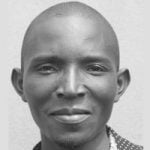Veteran Politician and former diplomat Vernon Mwaanga says the mass protests that led to the ousting of long time Sudanese ruler Omar Al Bashir, should serve as a reminder to other dictators that the day will come when they will also be removed from power.
In a statement, Mwaanga said leaders who reject dialogue end up regretting when they are out of power.
“The removal of President Al Bashir, after presiding over a brutal and repressive regime for three decades, must serve as a timely warning and reminder to other dictators that every dog has its day, no matter how long it takes. When that day comes, there will be no hiding place. What the dictators don’t seem to realise is that once they are forcibly removed from power, their families, praise singers and cronies suffer with them and subjected to the most severe scrutiny, including what they may have looted while he was in power,” Mwaanga said.
He warned that the absence of dialogue in a democracy had the potential to breed chaos.
“I have been an advocate of serious, genuine and constructive dialogue dialogue among political adversaries all my life, for which I have no apologies to make. When differences and problems occur in countries among adversaries or opponents, dialogue is the most important and only thing to have recourse to. Those who reject dialogue, often regret their decisions when it is too late to make amends. For the sake of peace and reconciliation, African dictators must recognise and accept the importance of dialogue for the sake of peace on our Continent. The alternative is confrontation and conflict, which only dent our Continent needlessly, just to satisfy the selfish desires of leaders.”
Mwaanga said African dictators think that oppressing their citizens would keep them in power forever.
“A few weeks ago, I called on the long serving President of Sudan, General Omar Al Bashir, who has ruled the Sudan for 30 years, to stand down and allow for a Peaceful transition of power to a new democratically elected government to take place. This was after the Sudanese people from all walks of life, took to the streets unrelentingly demanding his resignation and a handover to a short transitional administration, which would prepare for a genuinely elected government. Bashir who came into power through a dreaded military coup, responded in a typical dictatorial manner, by ordering the police and military to shoot and kill unarmed and peaceful demonstrators’-mainly young people who have not known any other President. Thousands of people were arrested by the security services, brutally beaten up and tortured at secret locations,” said Mwaanga.
“This response was typical of the response by many African dictators, who think that repression of their people using state instruments of violence, can keep them in power forever. Events in Sudan and Algeria, have shown that people power is mightier than the sword and that no matter what force you use, you cannot stop an idea whose hour has come. Killing and brutalising your people is not a viable solution to your insatiable appetite for power. This is why political dialogue is desired over confrontation. History has shown that power is never permanent. When your people get to a point where they feel they have nothing to lose anymore, no amount of force or brutality can deter them from demanding change which they think can change their country and their lives for the better.”



















